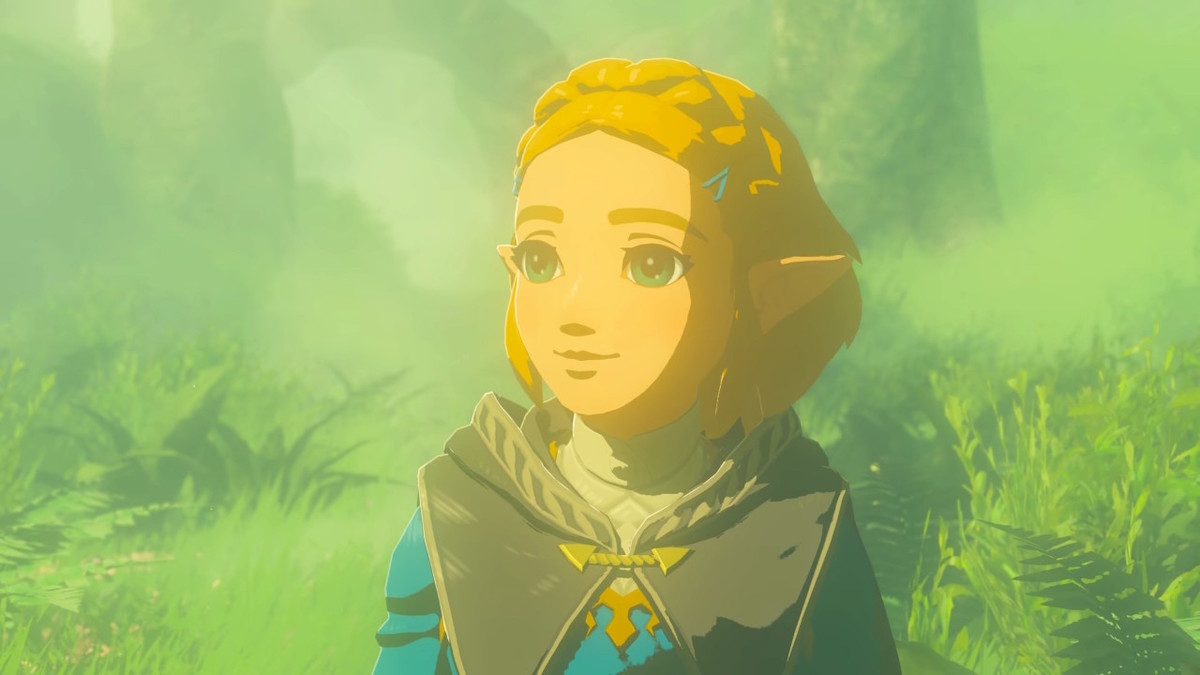Ever since its inception in 1986, The Legend of Zelda has been a staple for not only Nintendo fans but everyone who enjoys video games.
It doesn’t matter if you’re loyal to another platform; everyone adores the Zelda series because it sets the standard for the industry’s future. They’re the games to which every other game is compared. However, there are rather a lot of Zelda games, making the series feel like one that’s almost impossible for newcomers to approach. Anybody can find an entry that looks good to them and know they’re not about to play the dud of the series or some obscure spin-off no one has ever heard of, so here are the 12 best Zelda games of all time, ranked.
The 12 best Zelda games of all time
In the list below, we’ve ranked the twelve best Zelda games of all time according to how much we enjoyed them when going through them. We’re well-versed in the series and, having extensive knowledge of every entry, feel we’re qualified to build this list so that it can help anyone looking for the best of a fantastic franchise that’s very difficult to know where to start.
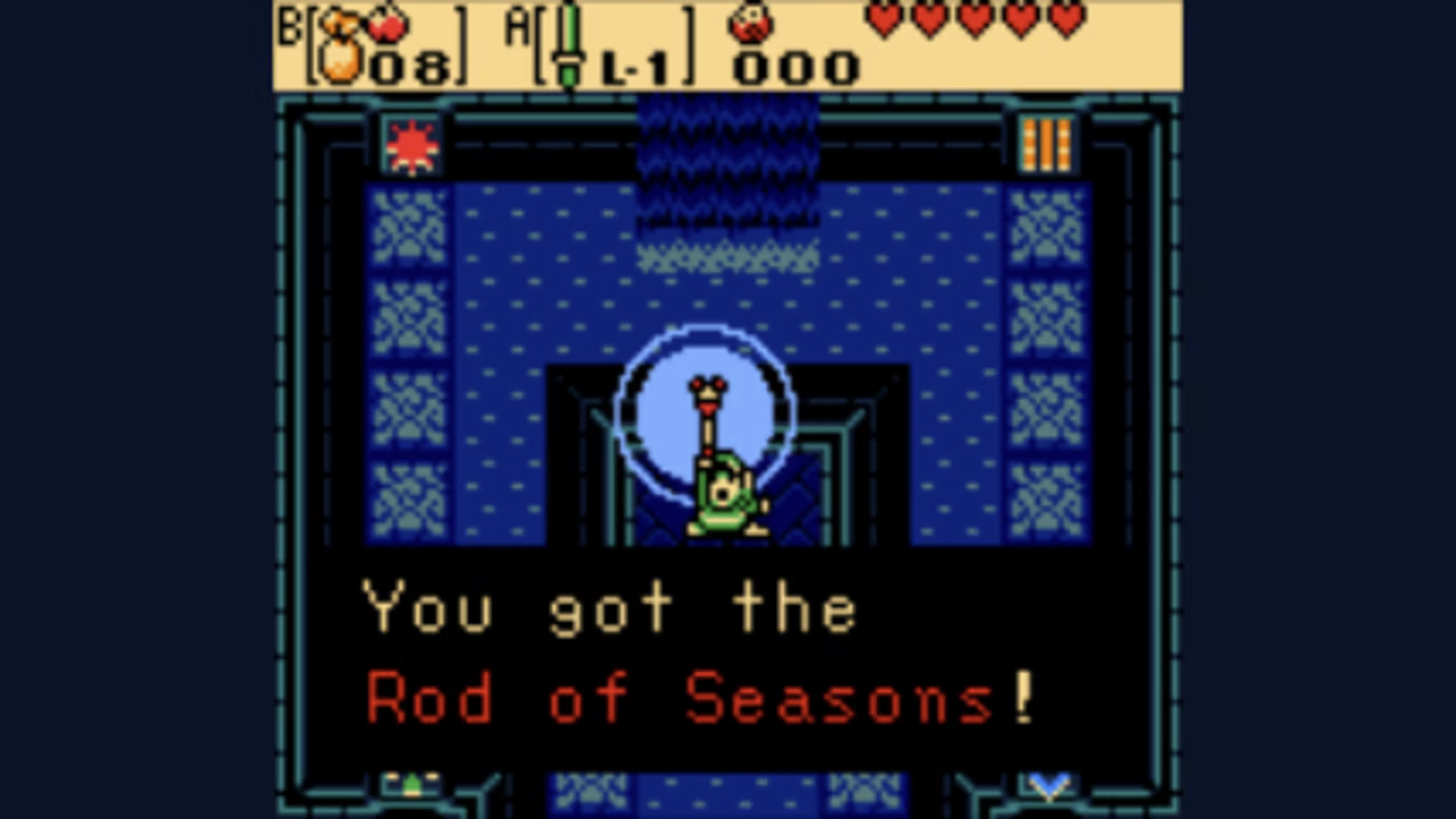
12: The Legend of Zelda: Oracle of Seasons / Oracle of Ages (2001)
The Legend of Zelda: Oracle of Seasons and The Legend of Zelda: Oracle of Ages owe a lot of their identity to Link’s Awakening. They use a lot of the same gameplay conventions and graphics, which is how Capcom was able to release two full games at the same time. Also, yeah, Capcom made these games? That’s weird to think about.
The real novelty here is that once you beat one game, you’ll get a code to enter when you start the second one, and you get a sort of “Second Quest” version. It lets you choose which order to play the games, while maintaining a consistent narrative. It was quite innovative for its time, pulling off a simplistic version of what games like Mass Effect would do years later.
Still, the novelty of releasing two full-length Zelda games that focus on action and puzzles, respectively, helps these titles stand out to this day. With all the Zelda games that have received remakes, we say these should be the next titles to get a fresh coat of paint. You can play them now on your Switch with a Nintendo Online subscription if you don’t want to invest in the original hardware.
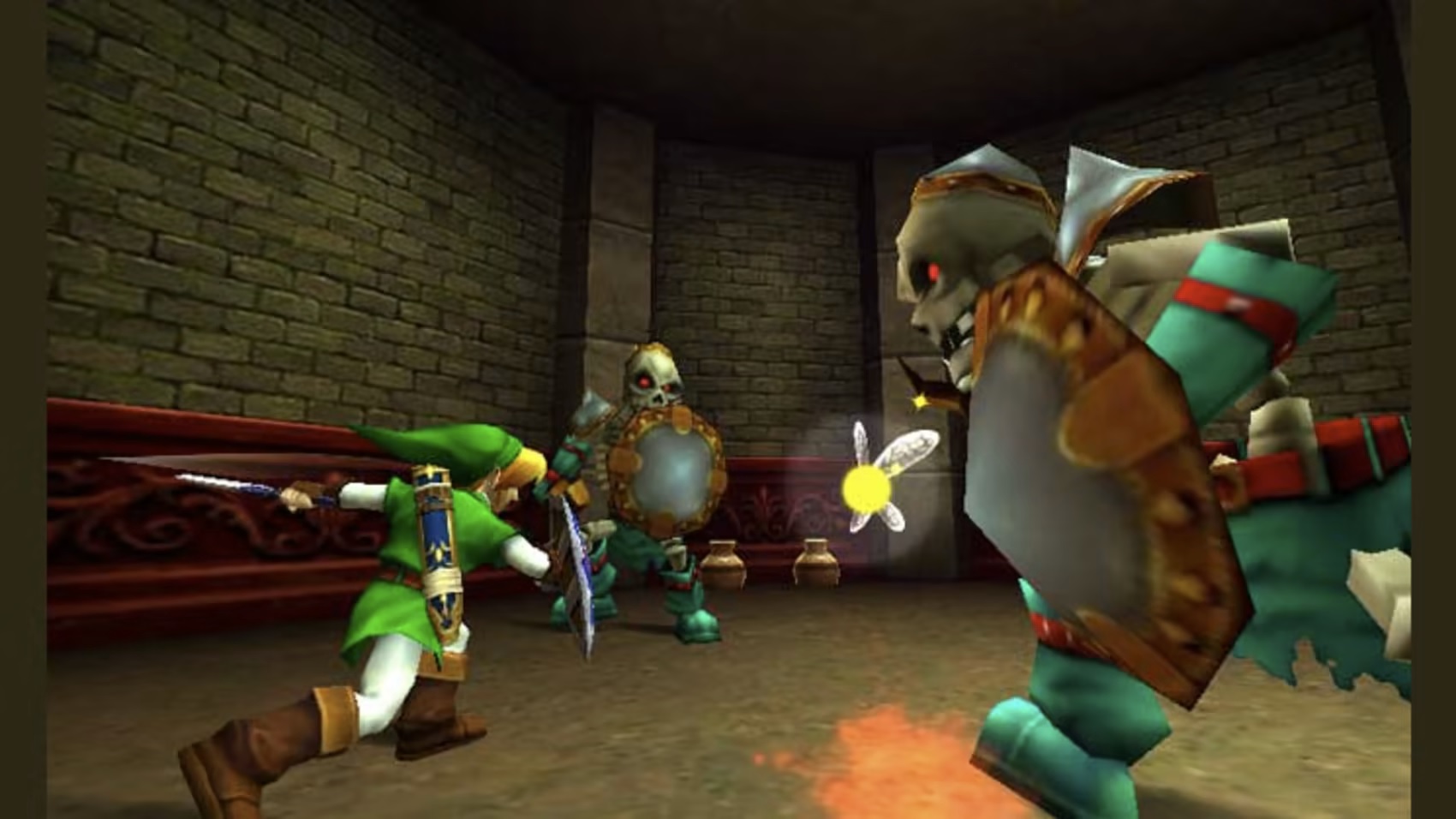
11: The Legend of Zelda: Ocarina of Time (1998)
There are two types of people in the world: those who think The Legend of Zelda: Ocarina of Time is the best game of all time and those who disagree. We personally don’t believe Ocarina of Time holds up as well against any other 3D Zelda. That said, we understand its place in history and respect the myriad ways it pushed video games forward as an art form.
Still, if you can go into this one without expecting the pinnacle of all video games, Ocarina of Time is very enjoyable. The puzzles and exploration are on point, and the contrast between the early game as a child and the later game as an adult still sticks with us. As the game that set the formula for nearly two decades of Zelda titles, it’s still impressive that they got this one so right.
The 3DS version of this game pretty much did everything right to modernize it as best as they could. It allows for swapping between more cumbersome equipment quickly, and the textures are much nicer on it. The addition of the 3DS’s motion controls were especially nice for those of us who appreciate the feature for aiming ranged weapons. That said, you can also find the original on your Nintendo Switch Online service, if you have that subscription.
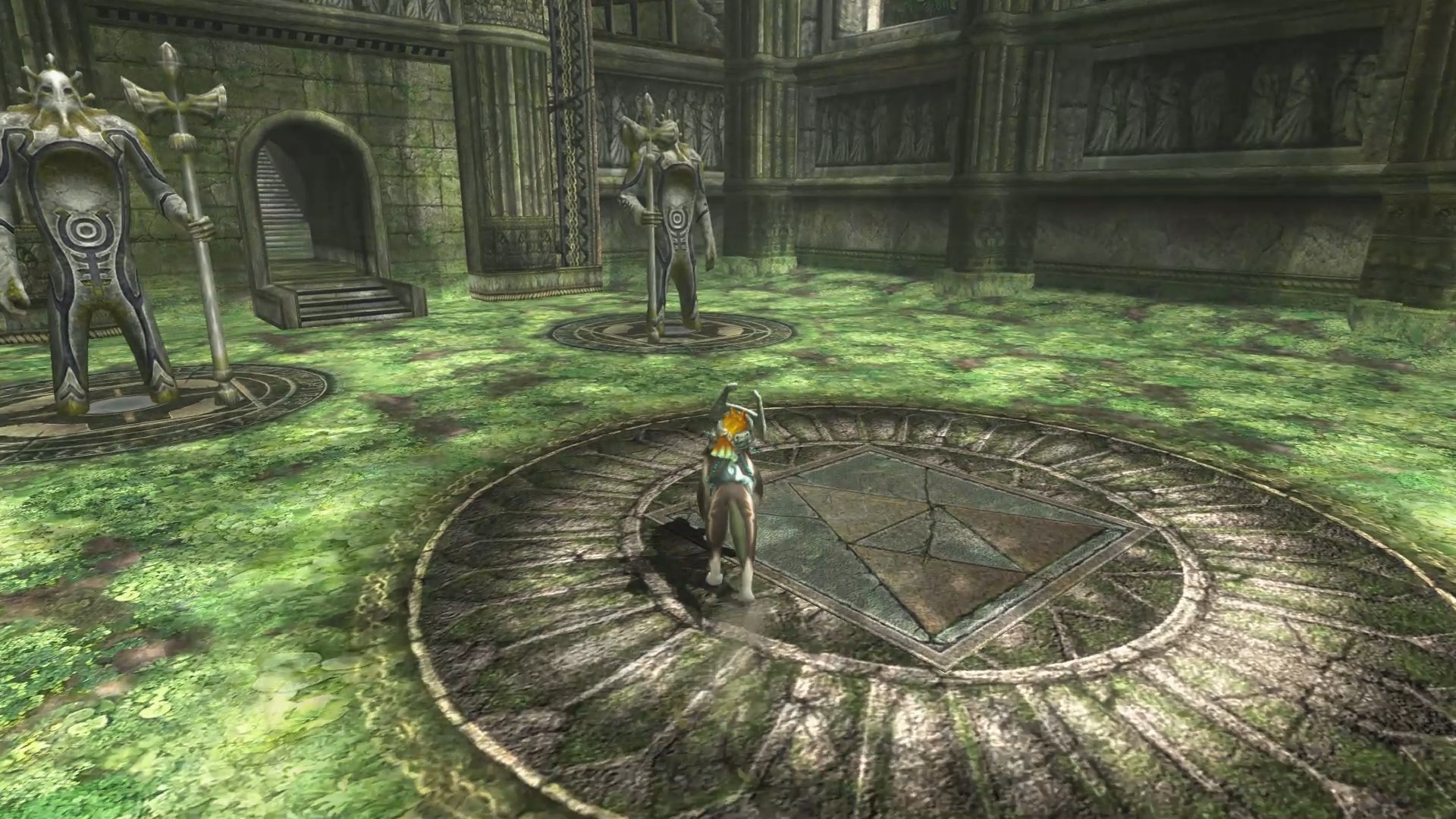
10: The Legend of Zelda: Twilight Princess (2006)
It’s funny that The Legend of Zelda: Twilight Princess was once celebrated as a return to “mature” Link after the cel-shaded art style of Wind Waker resulted in relatively weak sales. Yet now, Wind Waker enjoys greater fan acclaim while Twilight Princess is more divisive. For us, while Twilight Princess isn’t a series highlight, it is still a fun Zelda romp with its own appeal.
It’s clear this one was made for Ocarina of Time fans, and it does perfectly well building on that formula. Our memories of this game are tied up with the launch of the Wii, so it may be hard to separate the excitement entirely. In retrospect, the waggle controls for sword fighting aren’t super fun. But, the point-and-shoot capabilities of the Wii Remotes give Twilight Princess the best Bow and Arrow in the series.
Still, we’d stand by Twilight Princess being well worth your time. The game’s captivating worlds and use of the Wii hardware are still impressive today. We remember taking hours to master specific attacks and sniff out NPCs as Wolf Link, but we wouldn’t change them for the world. If you happen to have a Wii U around, the HD port is probably the best way to play the game.
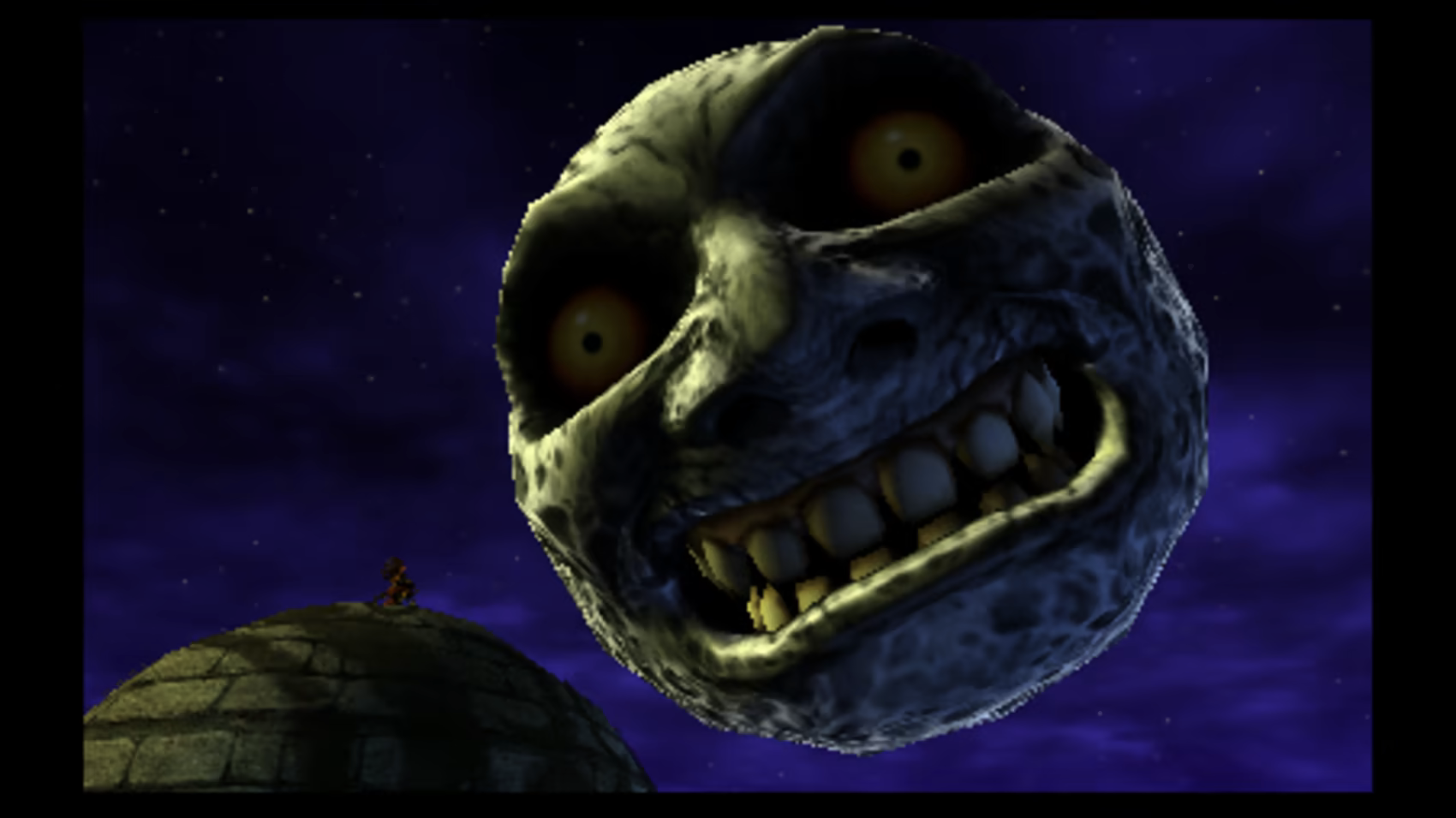
9: The Legend of Zelda: Majora’s Mask (2000)
Here’s the thing about Zelda games, especially The Legend of Zelda: Majora’s Mask: We like it when they get weird. As far as weird Zelda games get, they don’t get weirder than this. Much could be said about its gameplay revolving around a three-day cycle you repeat over and over until the game’s conclusion. For us, Majora’s Mask is all about its foreboding atmosphere. The end of the world literally hangs above you, driving a sense of urgency to everything you do.
You learn about the people and places around you, which establishes you as a helpful observer rather than a grand hero of time. There are also moments of whimsy here, which ironically drives the inherent terror of this setting further when you realize how much is at stake. We’re not saying everyone needs to beat Majora’s Mask, but you should experience it in some fashion, even if it’s via an internet creepypasta.
Fortunately, you don’t have to go far to find a good way to play this. The remake on 3DS was a bit divisive for hardcore fans because it made some of the bosses easier, but overall, it’s also a less cumbersome version of the game. If you’re a purist, the Nintendo Switch Online offers the original N64 game for you to play.
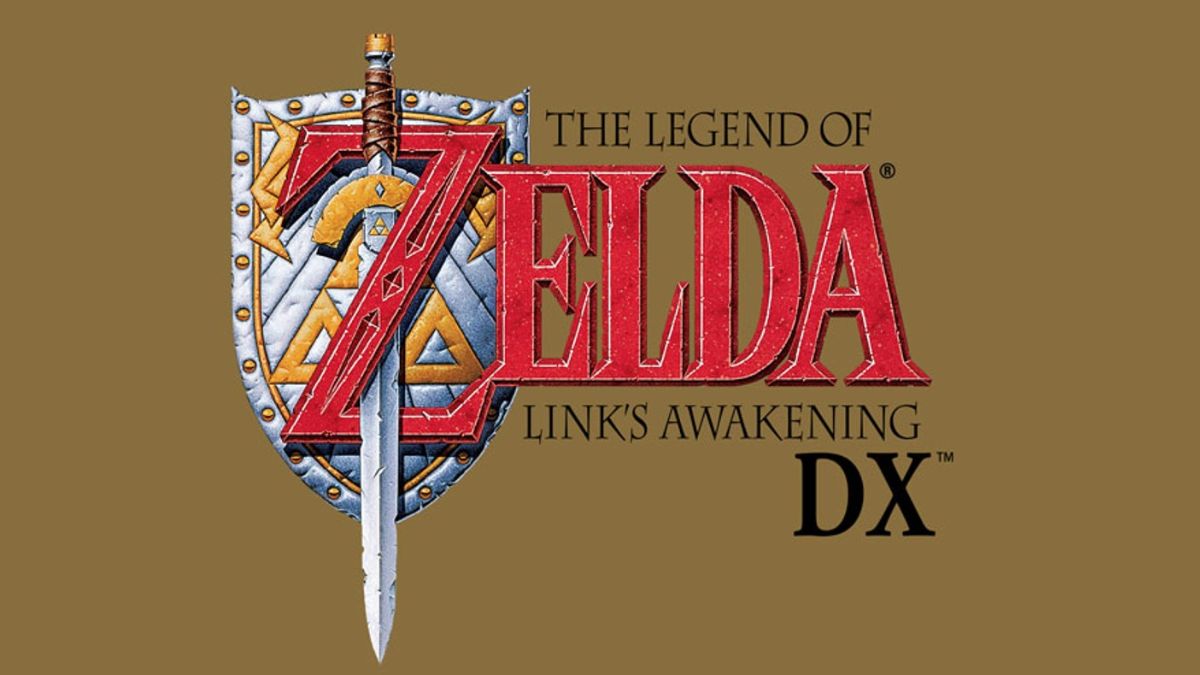
8: The Legend of Zelda: Link’s Awakening (1993)
Honestly, sometimes Zelda games are less about the story and more about the gameplay. The games are always endearing and full of charming characters. But nothing quite strikes like The Legend of Zelda: Link’s Awakening. We love Koholint Island because it’s such a weird, whimsical place. Every story beat is distinct and memorable despite the incredibly limited hardware this game is running on.
Yet, at the same time, there’s a thick air of melancholy hanging over everything you see and do. We love how Link’s Awakening uses its setting to drive home the impermanence of life. Everything will fade away someday, but life is like that, and you can’t live inside of a dream forever.
Zelda games love to iterate on the central core of its story. The tale of Link and Zelda defeating Ganon is meaningful if you grew up attached to these characters and would love to see how the story changes time and time again. Yet we love Link’s Awakening because Link isn’t the legendary hero who saves the island. He’s just a person trying to find their way, getting to know and love the world around him before it inevitably ends.
In real life, we can’t relate to saving the world by ourselves. We relate to happy memories punctuated by painful goodbyes. This is the Link we can relate with, and that is why Link’s Awakening is so special. It’s odd; it’s different, yet ironically, it’s the most grounded Zelda game ever created.
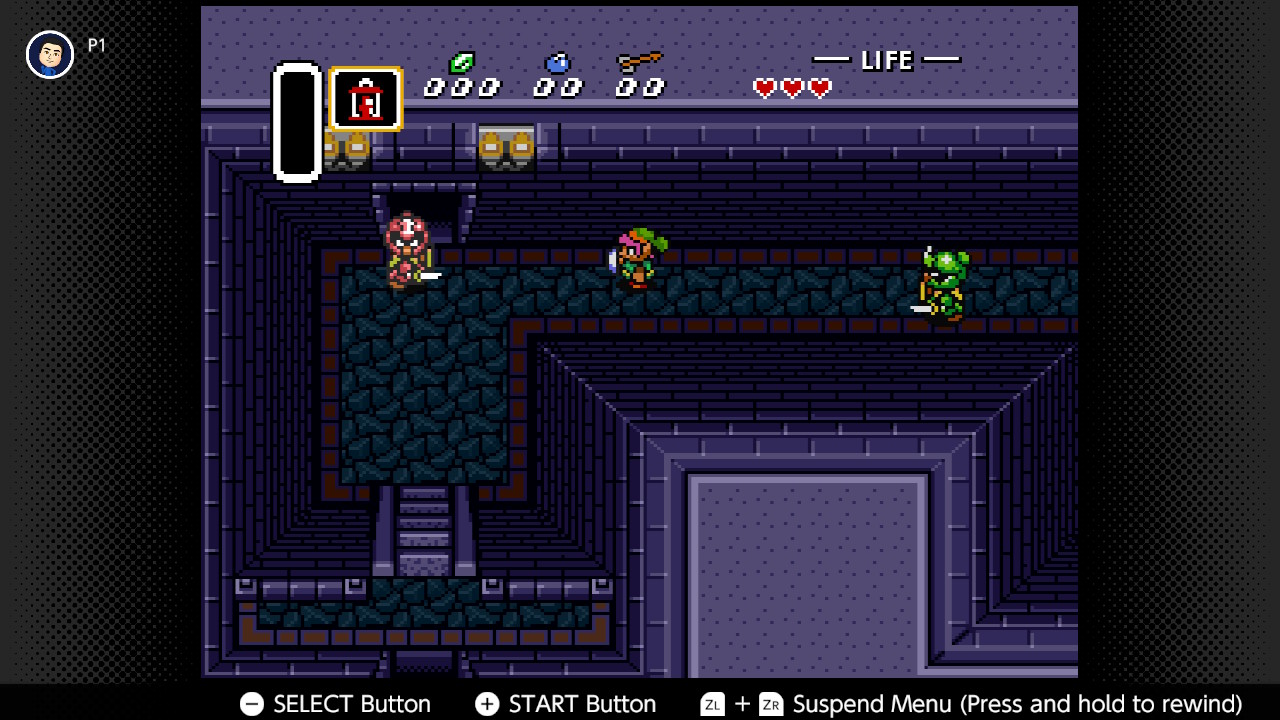
7: The Legend of Zelda: A Link to the Past (1991)
The Legend of Zelda: A Link to the Past is a great sweet spot between modern sensibilities and retro charm. Though there’s a greater focus on the story than the NES titles, it still has the immediacy that pushes you right into action and exploration without hesitation. It also has genuinely incredible aesthetics and music for its vintage. The first look at the Dark World atop the Pyramid of Power is striking to this day.
A Link to the Past stands up remarkably well to today’s standards. It remains one of the greatest SNES games ever made. It established a lot of the core concepts that are still used today, like themed dungeons and mid-story twists. This game is the blueprint all others in the series would follow until Breath of the Wild.
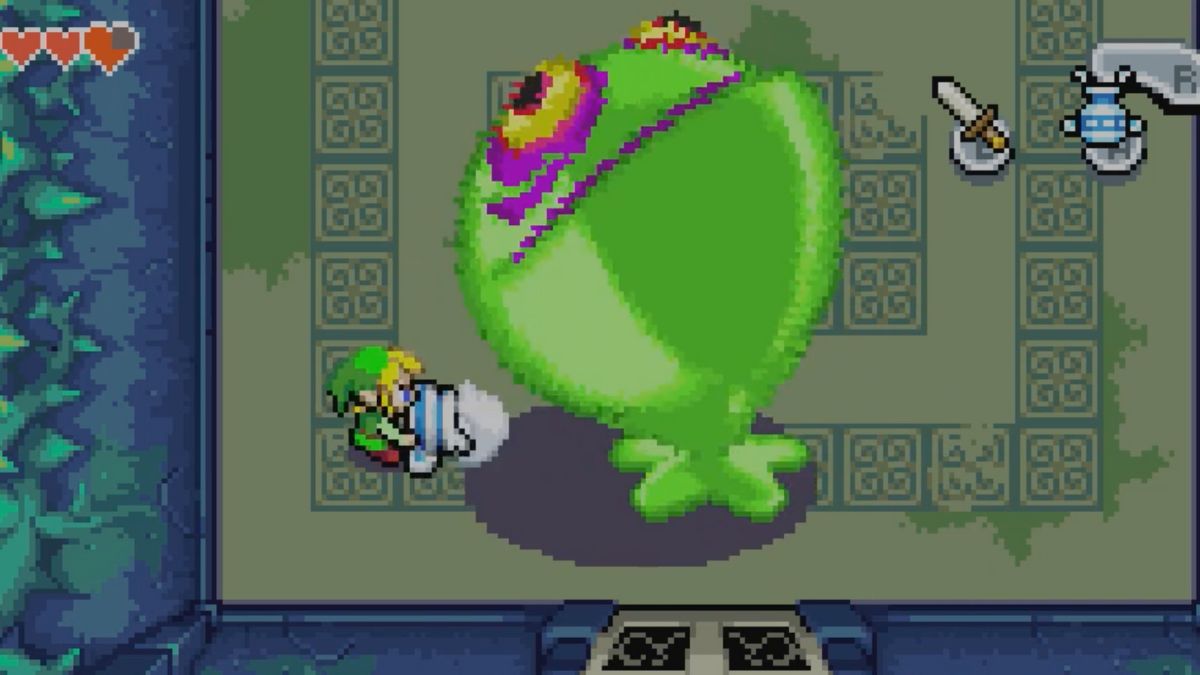
6. The Legend of Zelda: The Minish Cap (2004)
There’s so much going on in The Legend of Zelda: The Minish Cap that the main story almost feels like a side activity. It has no right to be as good as it is on the Game Boy Advance, but here we are. You play as Link in a quest to restore order while working with the Minish Cap, a hat that can shrink Link down to the size of a race of tiny beings who live in mushrooms, hollowed-out stumps, and on our shelves.
We adore this Zelda game because it represents not just the cutest adventure in the franchise but also one of the most impressive compared to its hardware. This game has ideas that have informed several future entries.
The thing we love most is how much effort has been put into the world and the reasons to explore it. There are collectibles that interact with each other across the map to open up treasures to collect and tools to buy with those treasures. It feels endlessly explorable because of the way you can shrink down, and we really hope the concept returns in a mainline entry in the future.

5. The Legend of Zelda: A Link Between Worlds (2013)
Take everything that was great about A Link to the Past, and do it one better. That includes dimensions! While the game is still played like its 2D predecessor, the game really explores a three-dimensional space in a fascinating way. Link has the ability to “merge” into walls and become a living painting. He can then maneuver around the walls to explore new areas and gain new perspectives of an otherwise well-worn world.
The dungeons remain incredible, the gameplay is even smoother and faster, and there’s just so much to do. The game also experimented with ways to open up progression to allow players to pick the order in which they tackle dungeons, which was the start of concepts we’d see moving forward in the series.
While the nostalgia is great, it really is the interactivity on a whole new level that sets this game apart.

4. The Legend of Zelda: Echoes of Wisdom (2024)
This isn’t recency bias. Echoes of Wisdom legitimately put a smile on our faces from start to finish. It wasn’t everyone’s cup of tea here at Destructoid, but that’s okay! This isn’t exactly a scientific list.
Some of us enjoyed the charming visuals matched with a sweet story about reuniting the world and its people. We enjoyed the ability to use whatever tools we wanted out of a massive kit in order to solve puzzles and combat. Perhaps most of all, we just enjoyed having a crazy take on a 2D Zelda.
Echoes probably won’t be this high on a lot of people’s lists; it really does come down to what kind of things you like out of a Zelda game.
For us on this list, it comes down to exploration and imagination. This game is absolutely overflowing with both.
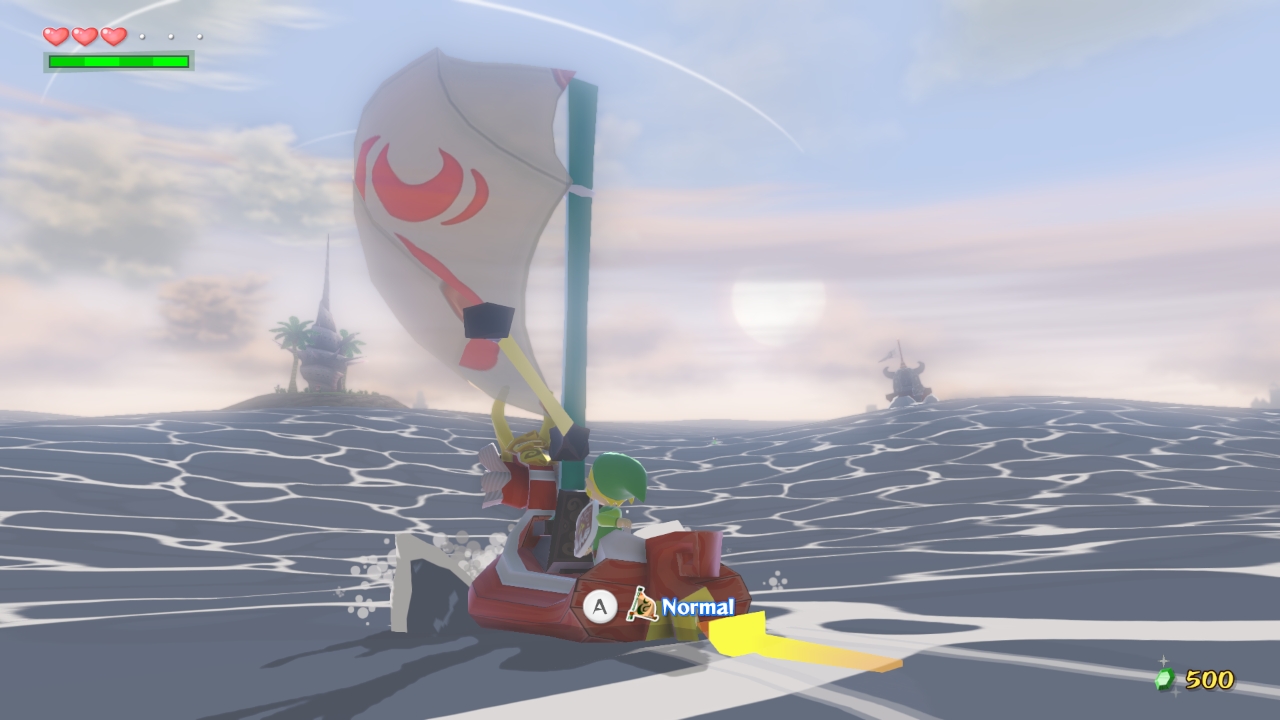
3: The Legend of Zelda: The Wind Waker (2002)
The Legend of Zelda: The Wind Waker is the official “too much water” Zelda game. We understand that the overworld exploration can be a chore for some. But for us, it’s exploration at some of the series’ best. Wind Waker overflows with so much personality that we can’t help but love it. No matter how much you point out what’s bad, we only see good.
While it was chided upon its release for being too kiddy, there are epic moments here that stand as high points for the franchise. On top of that, we love Link’s nimble controls here that naturally build off the N64 Zelda titles. Of the 3D Zelda games that existed before Breath of the Wild, this is the one we’ll always want to return to.
There’s a reason this was remastered for the Wii U and has become a title that people keep buying that console to play. It takes the idea of using music as a game mechanic in Ocarina of Time and utilizes it as something far more tactile. So many of its features feel at home in modern releases, which just goes to show how ahead of its time it was.
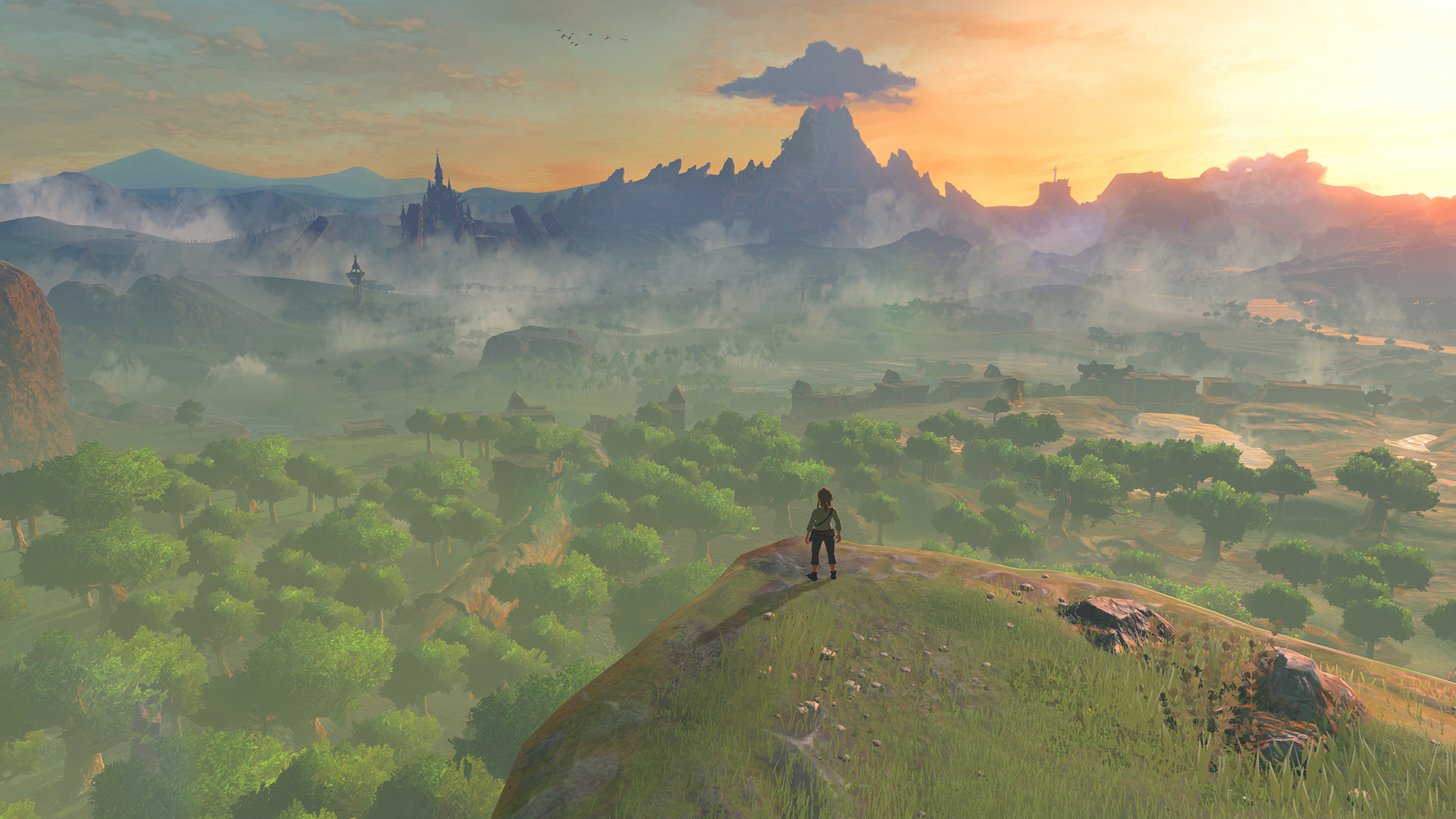
2: The Legend of Zelda: Breath of the Wild (2017)
In a post-Elden Ring world, The Legend of Zelda Breath of the Wild feels fresher now than it did in 2017. For the longest time, we could not get over quirks like weapon durability that hung over the entire adventure. Now, Breath of the Wild feels distinct because of how oddly meditative it is. Without the promise of valuable upgrades and weapons essential to your build, Breath of the Wild is a game driven by your own curiosity. Go where you want, do what you want; there’s no wrong answer as long as you’re having fun.
You’ll find a core story here, but at the end of the day, Breath of the Wild focuses on your stories. Maybe you solved a puzzle in an unexpected way, or maybe you laughed hard tossing a bomb into an enemy camp and watching everyone fly off a cliff. It’s easy to see why Breath of the Wild has redefined Zelda games as we know them, and Tears of the Kingdom decidedly proves that this style of Zelda game is here to stay. Breath of the Wild isn’t just a defining moment in the Zelda canon; it is one of the most important games ever made.
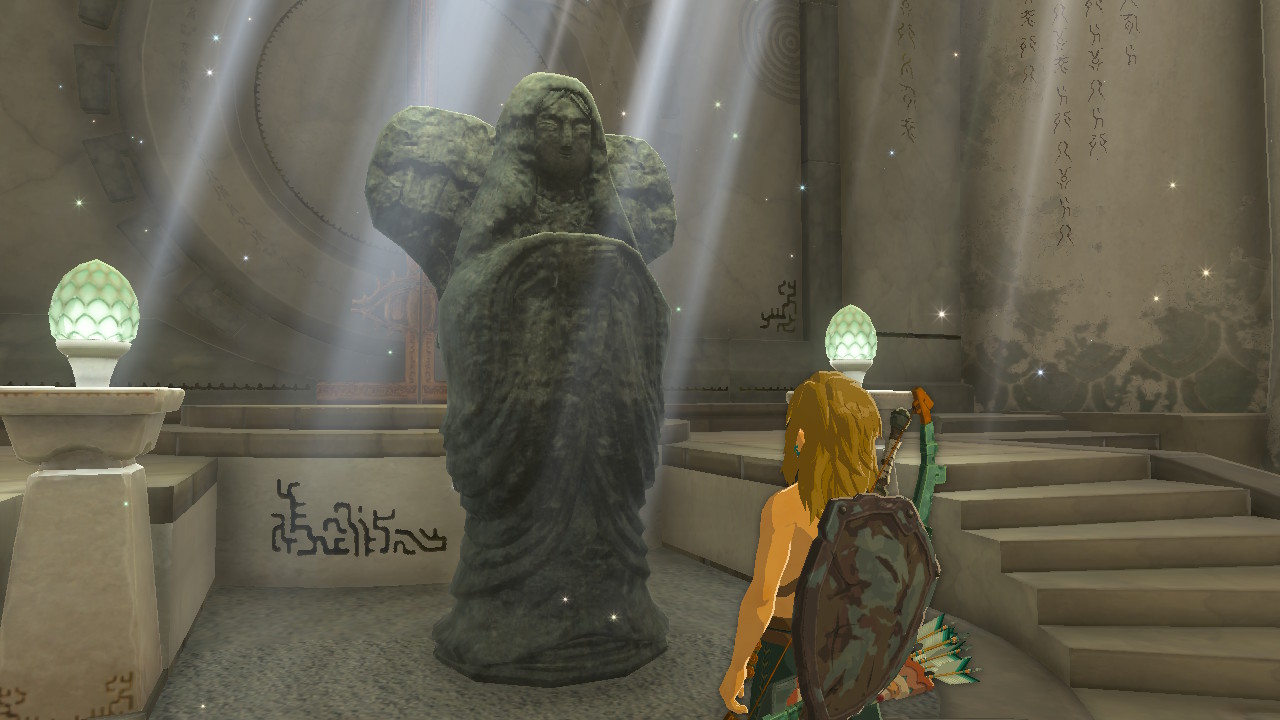
1. The Legend of Zelda: Tears of the Kingdom (2023)
The Legend of Zelda: Tears of the Kingdom is, and we don’t say this lightly, the best Zelda game ever made. Not only that, but it’s also the best open-world game we’ve ever played. The sheer level of freedom it hands the player after a short tutorial is unprecedented. You can tackle the main story, go off and do every side quest imaginable, or make your way into Hyrule castle and attempt to beat the final boss.
Most games have limits, but this one doesn’t. Link’s new abilities include the power to fuse items together. This opens up the best Zelda mechanic ever conceived, which sees you craft all sorts of mad weapons and vehicles to traverse Hyrule, beat bosses, and solve puzzles. It’s not just us. Our own Chris Carter gave it a 10.
Few games deserve a perfect score as much as Tears of the Kingdom. It flies in the face of most modern game design yet still manages to beat everything that even attempts to come close to its glory. This is a fantastic place to start if you’re new to the series, but it wouldn’t hurt to try out Breath of the Wild beforehand if you want a little story continuity.
It’s dangerous to have Zelda opinions. Here, take ours!
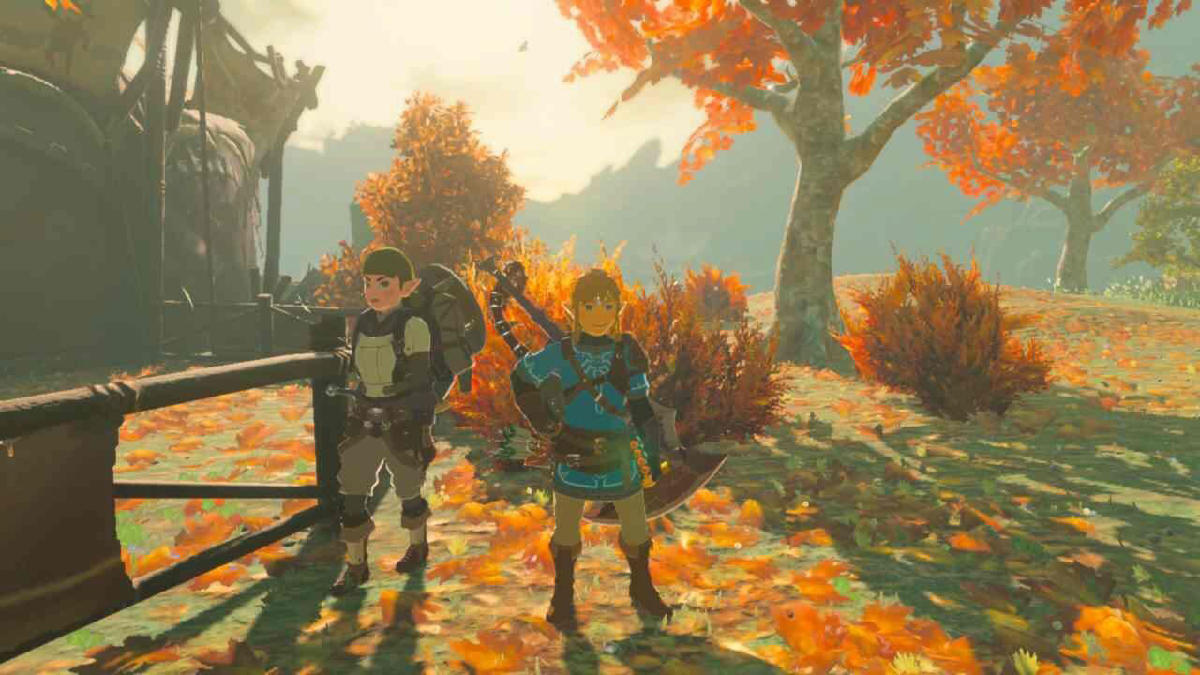
You can learn a lot about someone by asking what their favorite Legend of Zelda game is.
It’s a series so vast and so popular that anyone who plays video games has some opinion of it. You have the people who got into video games because they played Ocarina of Time as a kid. You also have the people who say Zelda has never been good since it went 3D. Even the games someone didn’t play can be revealing. In other words, an objective ranking of Zelda games is impossible.
Yet by the same token, every time someone ranks their favorite Zelda games, the more we can talk about a whole lot of good games. With that in mind, this is our very subjective, deeply imperfect ranking of the 12 best Zelda games. We’re counting on you in the comments to tell us what you think is the most deserving Zelda game we’ve missed out on.
